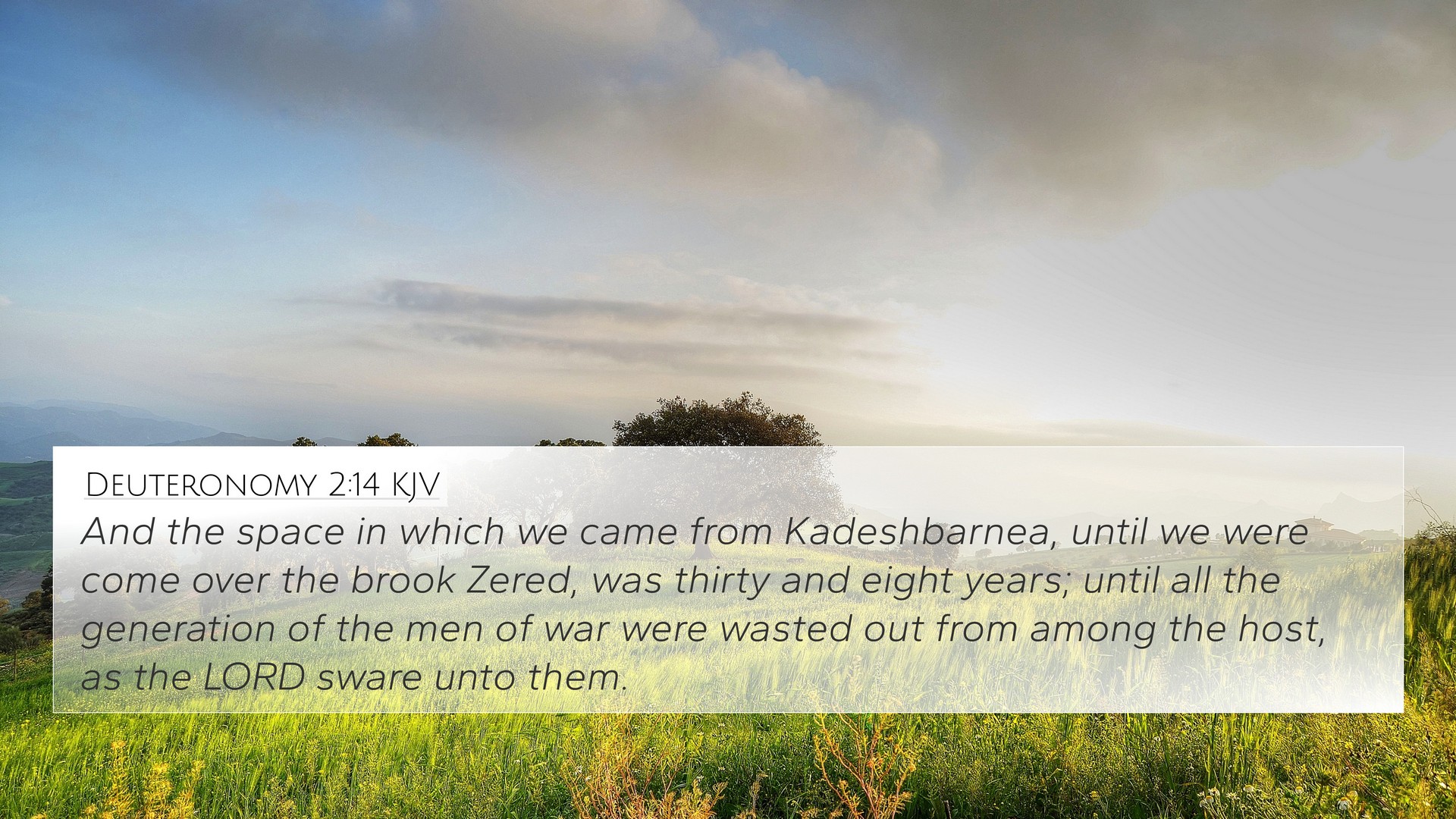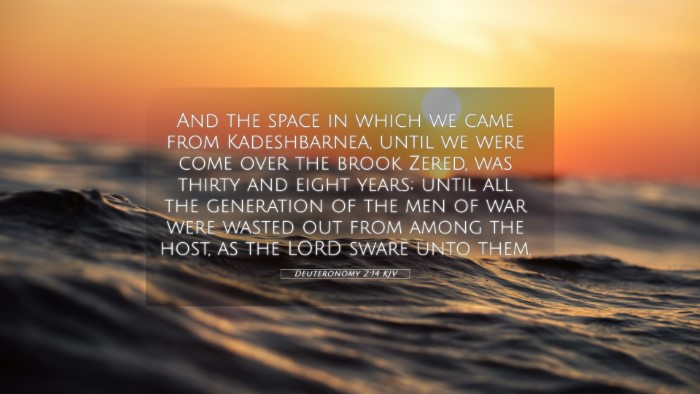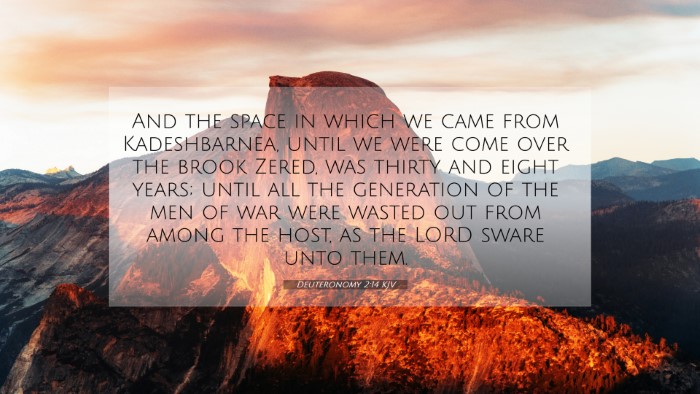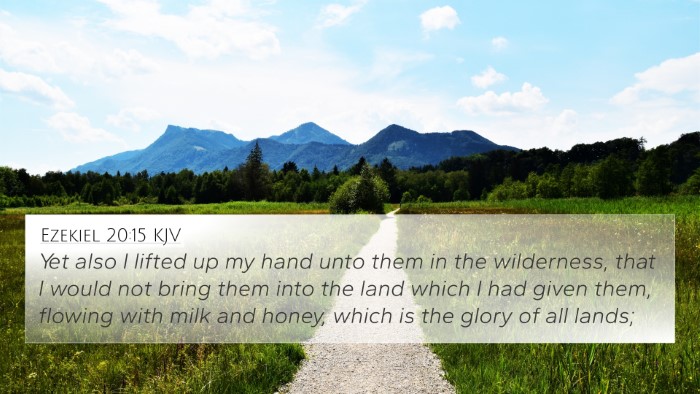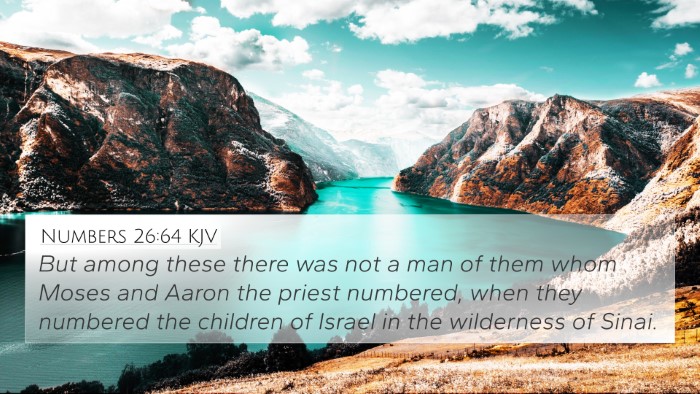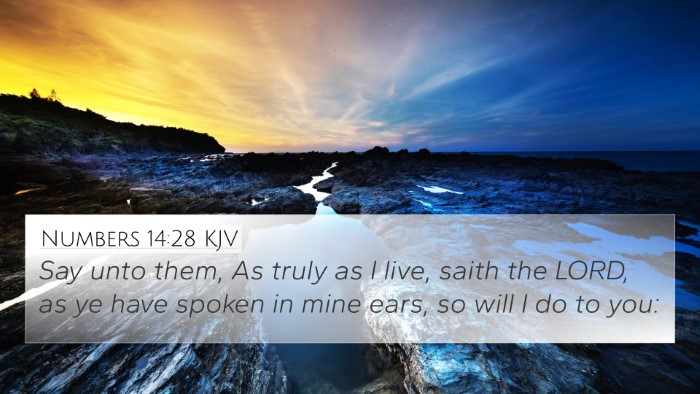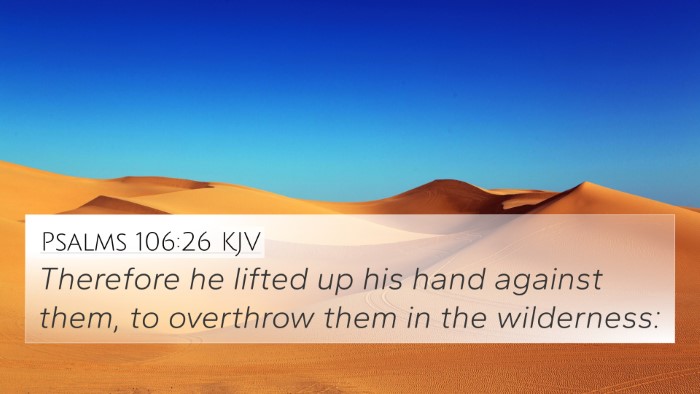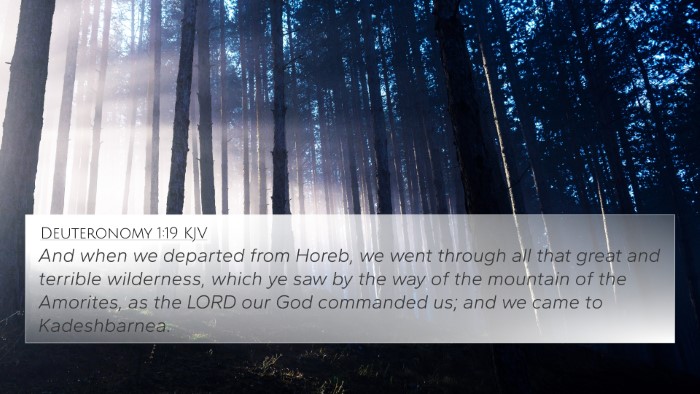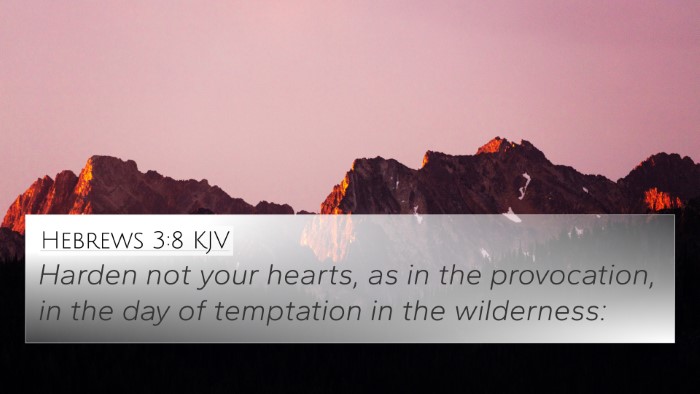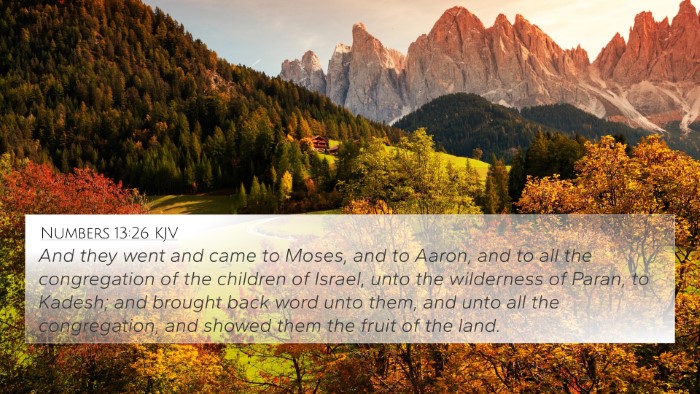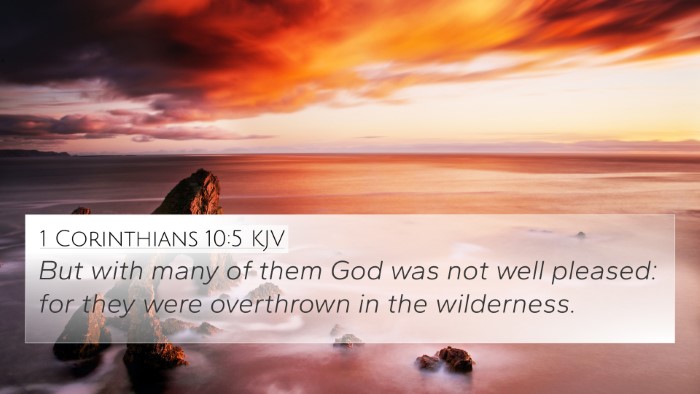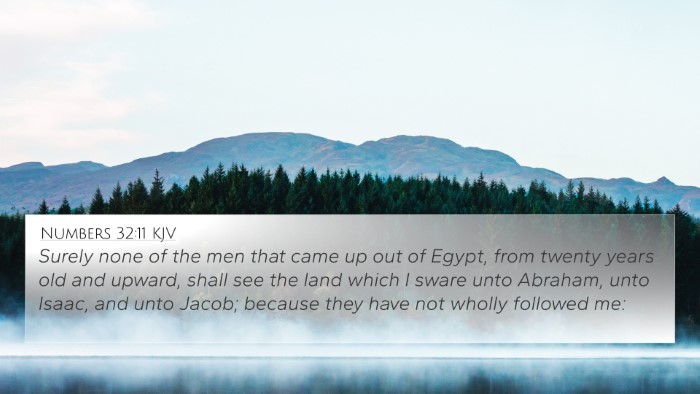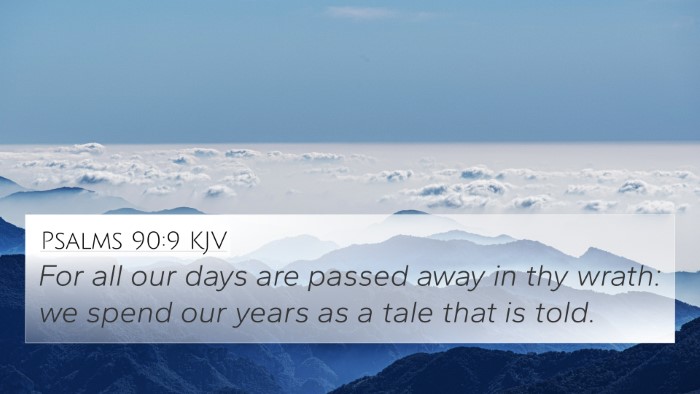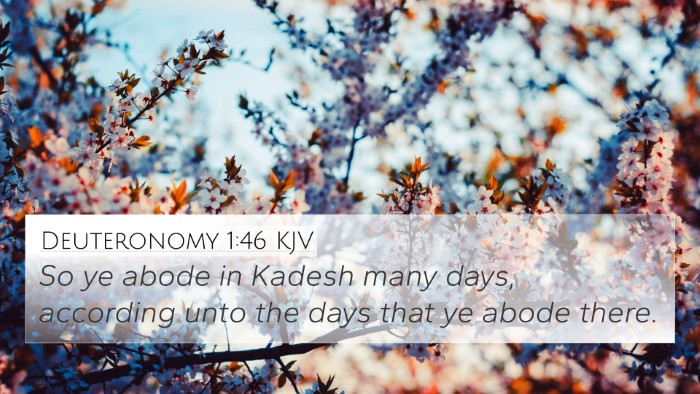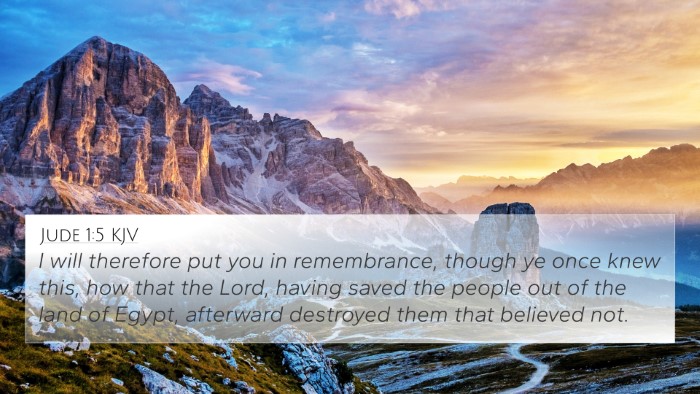Understanding Deuteronomy 2:14
Deuteronomy 2:14 states: "And the space in which we came from Kadesh-barnea, until we were come over the brook Zered, was thirty and eight years; until all the generation of the men of war were wasted out from among the host, as the Lord sware unto them."
Summary of Meaning
This verse reflects key events during the Israelites' journey through the wilderness. God’s judgment led to a prolonged wandering for 38 years as the unfaithful generation perished, emphasizing themes of divine justice and obedience. The mention of "Kadesh-barnea" illustrates the pivotal moment of disobedience, while the "brook Zered" marks the end of an era. In combining insights from Matthew Henry, Albert Barnes, and Adam Clarke, we see a complex interplay of God's promises, human disobedience, and the necessity of faithfulness.
Interpretation from Commentaries
- Matthew Henry:
Henry stresses the significance of the wilderness experience as both punishment and preparation for the next generation. He points out that the time in wandering was not wasted, as it served to refine and purify the Israelites.
- Albert Barnes:
Barnes emphasizes the fulfillment of God's word regarding the unfaithful generation. He observes that the 38 years symbolize a necessary period of transition where trust in God was evaluated, highlighting His righteous judgment.
- Adam Clarke:
Clarke discusses the geographical and temporal aspects of the journey, suggesting a detailed analysis of the implications of time in the wilderness. He connects this with broader themes of community identity and God's covenant promises.
Key Themes
This scripture carries multiple themes that are vital for understanding both the historical context and spiritual lessons:
- Obedience and Its Consequences: The Israelites’ failure to obey God led to severe consequences, demonstrating the importance of faithfulness to divine directives.
- God's Justice: The affliction of the unfaithful illustrates God's justice and the repercussions of lack of faith.
- Time and Renewal: The significant period of wandering signifies a time for spiritual renewal and cleansing before entering the Promised Land.
Bible Cross References
To enhance understanding, here are 10 cross-references closely related to Deuteronomy 2:14:
- Numbers 14:29-30 - God's judgment on the doubting generation.
- Deuteronomy 1:34-36 - The Lord's anger against the Israelites.
- Psalm 95:10-11 - A reflection on the consequences of disbelief.
- Hebrews 3:17 - A New Testament warning drawing from this history.
- Exodus 16:35 - God's provision during the forty years in the wilderness.
- Joshua 5:6 - The importance of obedience as they approach the Promised Land.
- Romans 15:4 - The purpose of the Old Testament for teaching and hope.
- 1 Corinthians 10:5-6 - Warnings from Israel's history as examples for believers.
- Psalm 107:4-5 - A parallel of wandering and hardship experienced by God's people.
- Isaiah 40:31 - The renewal of strength, echoing the theme of waiting on the Lord.
Connecting This Verse to Broader Biblical Themes
This verse, through its historical and spiritual context, links to a broader understanding of God’s promises and human loyalty. The time of wandering can be cross-examined with:
- Linking Bible Scriptures: Drawing parallels between the teachings of the Old Testament and new revelations in the New Testament.
- Bible Concordance Usage: Utilizing references to explore thematic connections across different scriptures.
- Inter-Biblical Dialogue: Engaging with various Biblical texts to form a comprehensive understanding of God's covenant.
Application in Study and Reflection
As you study Deuteronomy 2:14, consider how this narrative shapes your understanding of:
- Divine Justice: Reflect on how God’s judgments serve as lessons for future fidelity.
- Faithfulness amid Trials: Evaluate how periods of waiting can shape character and faith.
- The Role of History in Scriptural Understanding: How do stories from the past inform your faith today?
Conclusion
Deuteronomy 2:14 provides profound insights into God's dealings with His people, serving as a reminder of the consequences of unbelief and the importance of obedience. By utilizing tools for Bible cross-referencing and exploring thematic connections with various scriptures, believers can deepen their understanding of God's faithful character and the journey of faith.
